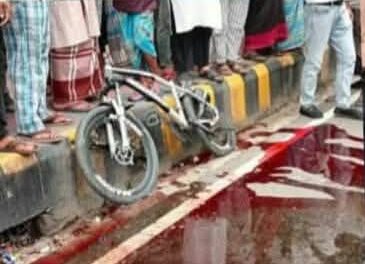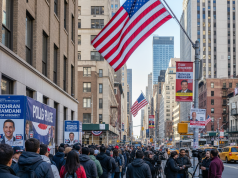EDITORIAL
It was a typical afternoon at Boropool Mor in Halishahar, Chattogram—one of the city’s bustling intersections where thousands commute every day. On June 11, 19-year-old Osman Gani Shakib, riding his bicycle, was suddenly crushed under the wheels of a white Honda Civic. He died on the spot. The driver also 19-year-old Tanim Hossain Rabbi—was driving without a license.
This was not just a tragic accident. It was the inevitable result of systemic negligence, legal laxity, and a dangerous social mindset that glorifies speed, power, and privilege over responsibility. Shakib’s death is not just personal loss—it is the symbolic death of conscience in a society where accountability has become optional.
Shakib hailed from Naikhongchhari and was staying in Halishahar. A calm, ordinary youth with dreams probably no bigger than a peaceful life and a better future, he had no way of knowing that his life would be cut short by someone who should not have been behind the wheel in the first place.
Driving without a license is a punishable offense under the law. Yet our streets are increasingly filled with underage or unlicensed drivers, often handed the keys to powerful vehicles by indulgent or careless guardians. Tanim was reportedly from a privileged background, and the car was likely family-owned. This raises uncomfortable but essential questions—who gave him the vehicle? Why was he not stopped earlier? Where was traffic enforcement?
The responsibility for Shakib’s death doesn’t lie solely with the driver. His guardians, who allowed him access to a car, must be held accountable. The traffic department, whose duty it is to monitor and regulate drivers, has failed in its preventive role. Most importantly, our society is complicit for normalizing such recklessness, brushing it off as “kids being kids”—until lives are lost.
Police have arrested the driver and seized the vehicle. A post-mortem is being conducted. But these are reactive measures. The real failure occurred much earlier—when our institutions, families, and social norms allowed this tragedy to become possible.
We frequently hear promises of improved road safety, of stricter laws and enforcement. Yet young, wealthy individuals continue to race through our streets with impunity. Laws remain on paper; vows dissolve with the next news cycle.
In light of this horrifying incident, we urge immediate and concrete action:
- Enforce a zero-tolerance policy against unlicensed and underage drivers.
- Hold guardians legally accountable for enabling such behavior.
- Intensify traffic surveillance and random license checks across all major cities.
- Ensure appropriate compensation and psychological support for Shakib’s grieving family.
- Launch nationwide awareness campaigns, involving schools, media, and civil society, to instill a culture of responsible driving.
Let Shakib’s death not be in vain. Let it wake up a sleeping nation, a numbed conscience. Let it stir us to act before another bicycle is crushed, another family shattered, another young life lost to arrogance on wheels.
The death of Shakib was preventable. That is what makes it unbearable. May his memory compel us to build a road culture that values life over speed, caution over carelessness, and accountability over indifference. Let us turn this mourning into a movement—so that no mother, father, or friend has to weep over such senseless loss again.











